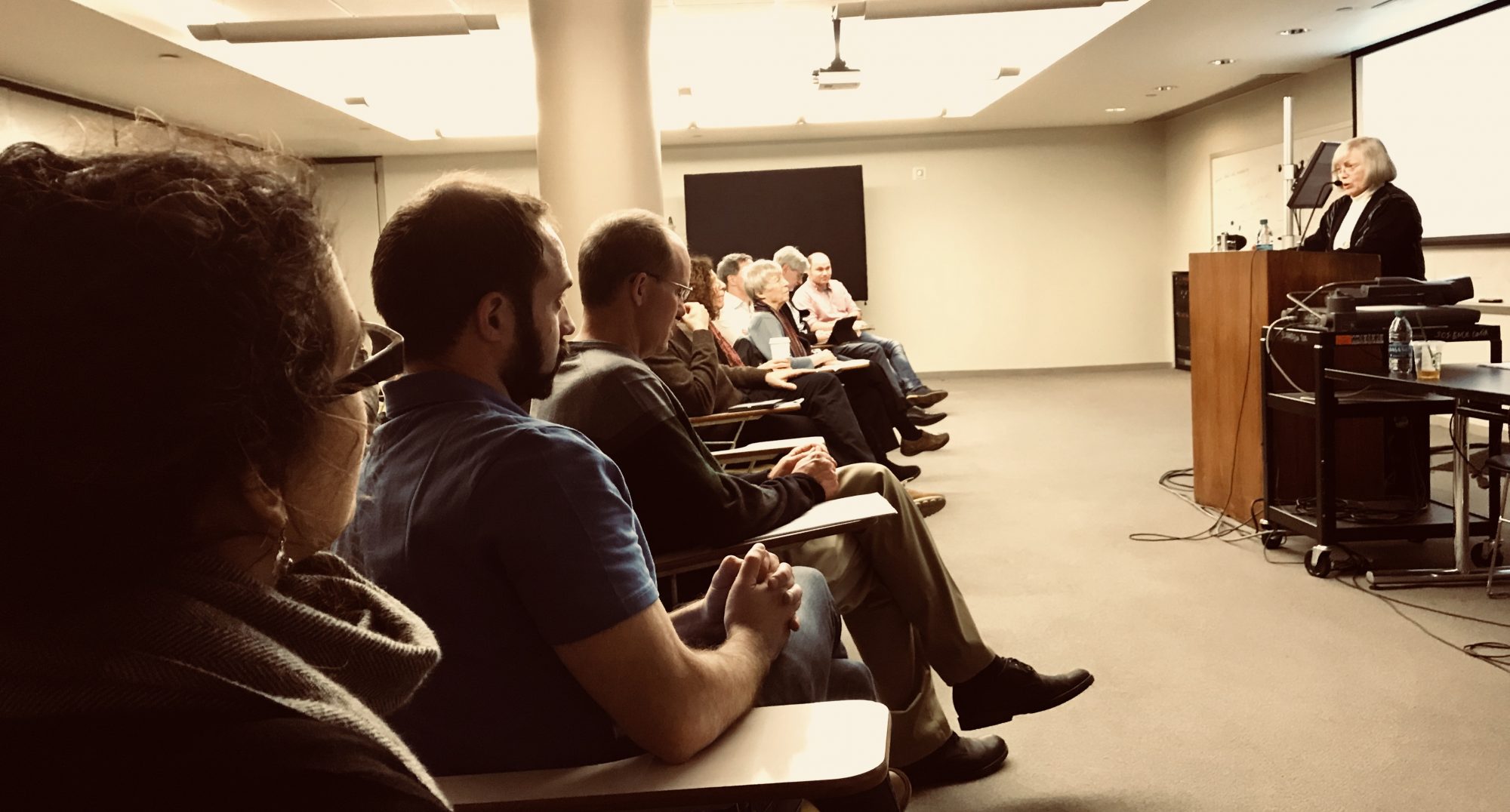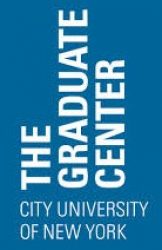Physical Anthropology at CUNY covers a wide range of topics, with a strong emphasis on evolutionary approaches to understanding human and nonhuman primate biology. Current research involves six main areas: the comparative morphology, scientific visualization and 3D morphometrics, paleontology, biogeography, and systematics of humans and other primates; primate ecology and its relationships to both social behavior (including cognition) and to conservation problems; the biology of modern humans (with a focus on adaptation); skeletal growth and development, osteology, and bone biology; craniofacial development and comparative anatomy; and forensic anthropology. The subfield has played a leading role in creating the New York Consortium in Evolutionary Primatology (NYCEP, see below), an NSF-funded training program which gives CUNY students access to faculty, laboratories and collections at New York University, Columbia University, the American Museum of Natural History, and the Wildlife Conservation Society (Bronx Zoo); a number of special courses in this program are jointly taught by CUNY, New York University, and Columbia faculty. Active laboratories in the CUNY system are at Hunter College (where there is a primate genetics lab and a lab for the analysis of vocalization), at Queens College (osteology and bioarchaeology), at Brooklyn College (3D high-resolution laser scanning), and at Lehman College (osteology/forensics and 3D “solid printing” of computer-visualized imagery). Other labs directed by CUNY faculty are located at the American Museum of Natural History (three dimensional geometric morphometrics and computer visualization) and Mt. Sinai School of Medicine (comparative morphology of the head and neck and speech origins). CUNY faculty members have field projects under way in paleontology and in primate and human ecology in France, China, Indonesia, several African countries and in South America.
Sample Dissertations
- Rachel Nuger. 2008. “The Influence of Climate on the Obstetrical Dimensions of the Human Bony Pelvis.”
- Nelson Ting. 2008. “Molecular systematics of red colobus monkeys.”
- Joshua Linder. 2008. “Differential vulnerability of primates to hunting in Korup National Park, Cameroon: Implications for primate conservation.”
- Karen Baab. 2007. “Cranial shape variation in Homo erectus.”
- Richard Bergl. 2006. “Phylogenetics, population biology and conservation of the Cross River gorilla.”
- Reiko Matsuda. 2006. “Behavior & ecology of the mona monkey (Cercopithecus mona Schreber, 1774) in the seasonally dry Lama Forest of Republic of Benin, West Africa.”
- Shannon McFarlin. 2006. “Ontogenetic investigation of bone histology & life history in catarrhines.”
New York Consortium in Evolutionary Primatology (NYCEP)
The New York Consortium in Evolutionary Primatology (NYCEP) is an integrated graduate training and research program in primate behavioral and evolutionary biology, funded by an NSF training grant. NYCEP involves faculty from the City University of New York, Columbia University, and New York University and selected staff of the American Museum of Natural History (AMNH) and the Wildlife Conservation Society (WCS). This unique consortium links a group of over thirty evolutionary biologists in New York City whose research focuses on human as well as nonhuman primates from the perspectives of morphology, paleontology, systematics, molecular and population genetics, behavior and ecology, and conservation biology.
Students in this program take courses in all these areas at the three universities, attend seminars that draw upon the staff of all five cooperating institutions, and have the opportunity to engage in original research in laboratories, museums, and in the field. The array of courses and research opportunities is far greater and more comprehensive than any one of the three participating degree granting institutions in New York City could otherwise offer, or than are available in any similar program. NSF funding has supported this unique program, which is widely acknowledged to be successful at attracting and training top-flight graduate students, and especially minorities and women. The collaboration among public and private universities and privately endowed (and publicly assisted) institutions dedicated to bringing the natural sciences to the general public is nationally unique and only possible in New York City where these institutions are all easily accessible.
Evolutionary primatology draws upon theory, method, and empirical data from other natural sciences, especially biology, anthropology, and geology. Collaboration among specialists with diverse research interests has proven extremely fruitful, especially in large-scale field projects. For example paleoanthropological research typically involves human and primate paleontologists, paleontologists specializing in other taxonomic groups, palynologists, taphonomists, archaeologists, sedimentary geologists, and geochronologists. Similarly, studies on natural primate populations may include geneticists, behaviorists, and conservationists. While it is rare for students to have the opportunity to experience all these disciplines during their graduate careers, NYCEP students are required to take coursework in all three. One of the distinct advantages of NYCEP is that the faculty are active in research that combines many of these areas of study, so that the value of adopting a multidisciplinary approach to scientific problems is introduced from the start of a student’s graduate career. NYCEP itself has catalyzed new, collaborative research initiatives among faculty and students at the participating institutions.
NYCEP also offers the student a chance to apply this multidisciplinary training in the field before undertaking independent research. Faculty and associates have field research programs on living primates at sites in Africa, Asia, and South America, as well as primate (including human) paleontology in East Africa, Asia and the Caribbean. Many courses are taught jointly by faculty members from two different institutions or departments. This teaching collaboration provides students with a variety of viewpoints early in their careers.
List of CUNY Faculty Participants in NYCEP
- Timothy G. Bromage, Department of Biomaterials & Biomimetics, NYU College of Dentistry
- Roberto Delgado, Department of Anthropology, USC
- Eric Delson, Department of Anthropology, Lehman College, CUNY (and AMNH)
- Rob DeSalle, Department of Entomology, AMNH
- John Flynn, Department of Vertebrate Paleontology, AMNH
- Katerina Harvati, Department of Human Evolution, Max Planck Institute of Evolutionary Anthropology
- Jeffrey T. Laitman, Department of Anatomy, Mt. Sinai School of Medicine
- Ross D. E. MacPhee, Department of Mammalogy, AMNH
- Colleen McCann, Department of Mammals, WCS
- Jin Meng, Department of Vertebrate Paleontology, AMNH
- Michael Novacek, Department of Vertebrate Paleontology, AMNH
- John Oates, Department of Anthropology, Hunter College, CUNY (emeritus)
- Ekaterina Pechenkina, Department of Anthropology, Queens College, CUNY
- Tom Plummer, Department of Anthropology, Queens College, CUNY
- John Robinson, International Programs, WCS
- Robert F. Rockwell, Department of Biology, City College, CUNY (and AMNH)
- F. James Rohlf, Department of Ecology & Evolution, SUNY Stony Brook
- Alfred L. Rosenberger, Department of Anthropology & Archaeology, Brooklyn College, CUNY
- Vincent H. Stefan, Department of Anthropology, Lehman College, CUNY
- Michael Steiper, Department of Anthropology, Hunter College, CUNY
- Sara Stinson, Department of Anthropology, Queens College, CUNY
- Katherine St. John, Department of Mathematics & Computer Science, Lehman College, CUNY
- Larissa Swedell, Department of Anthropology, Queens College, CUNY
- Ian Tattersall, Department of Anthropology, AMNH
- John Van Couvering, Micropaleontology Project
- John H. Wahlert, Department of Biology, Baruch College, CUNY (and AMNH)
All WCS and AMNH personnel listed are CUNY Graduate Center adjuncts, as are Drs. Bromage and Delgado; members of other CUNY programs are on their respective graduate faculties.
Links
AMNH (American Museum of Natural History)
NYCEP (The New York Consortium in Evolutionary Primatology)
Wildlife Conservation Society



